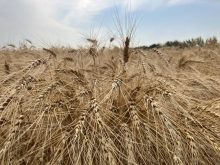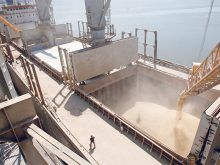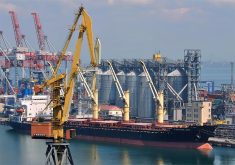This content was produced in Russia where the law restricts coverage of Russian military operations in Ukraine.
MOSCOW, Nov 7 (Reuters) – Russian wheat prices finished last week steady after volatile trade inside the week as Moscow suspended participation in the Black Sea deal allowing Ukrainian shipments and then came back to it, analysts said on Monday.
President Vladimir Putin on Wednesday reserved Russia’s right to withdraw again from the agreement that allows Ukraine to export grain via the Black Sea, after ending four days of non-cooperation with the deal.
Read Also

Using artificial intelligence in agriculture starts with the right data
Good data is critical as the agriculture sector increasingly adopts new AI technology to drive efficiency, sustainability and trust across all levels of the value chain.
Prices for Russian wheat with 12.5 percent protein content and for supply from Black Sea ports were at US$312 a tonne free on board (FOB) on Friday evening, unchanged from a week earlier, the IKAR agriculture consultancy said in a note.
Russia’s grain exports rose to 1.0 million tonnes last week from 910,000 tonnes a week earlier, the Sovecon consultancy said, citing port data.
“The lack of grain railcars remains a big problem for exports, and demand for trucks is extremely high, especially for the Black Earth – Rostov/Azov route,” Sovecon said, adding that infrastructure bottlenecks would be limiting the pace of Russian exports in the near term.
Farmers have already planted winter grains on 17.3 million hectares, compared with 18.1 million hectares around the same date a year ago, the consultancy said.
Overall weather conditions remain fine for development of the winter crops, though Russia’s southern regions are a bit dry, Sovecon added.















